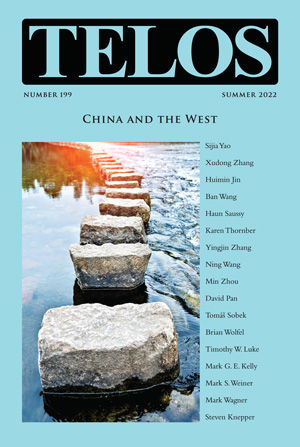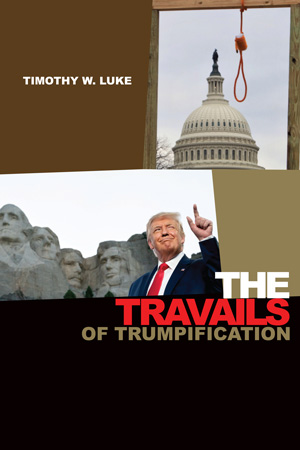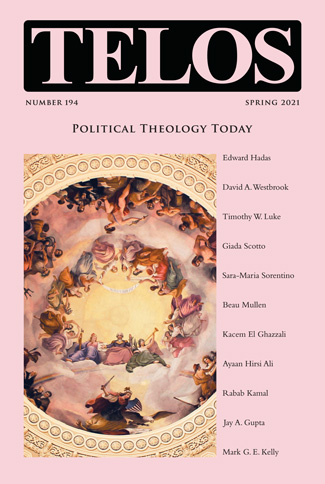By David Pan · Monday, September 26, 2022  By appealing to our common humanity, the idea of human rights and the idea of a “community of common destiny for mankind” promoted by the Chinese Communist Party seem to be referring to the same thing. Yet the two ideas are clearly opposed to each other, since the goal of the second idea is to supplant the first one. By opposing the idea of human rights and an existing international order that values the autonomy of nation-states and the rule of law, the Chinese Communist Party’s version of common humanity envisions a subordination of international order to Chinese power. One response to these opposing views of the meaning of common humanity would be to deny that such an idea might have any legitimacy at all and to then conclude that the only commonality we share would be a will to power. This stance, by denying the possibility of a common set of values, would undermine attempts at cultural exchange and comparison, as well as the legitimacy of any critique. The human rights ideal, by contrast, begins with recognizing, at a minimum, those transgressions that all humans seek to avoid, including torture, genocide, and enslavement. Such agreement provides the first step for a cultural comparison, which cannot begin until we define a common value. By defining such a value, it becomes possible to compare different manifestations of that value as well as to formulate a critique. In a follow-up to last week’s podcast with Sijia Yao, this week’s podcast with Xudong Zhang addresses the role of the idea of a common humanity for establishing the parameters of a cultural comparison between China and the West. By appealing to our common humanity, the idea of human rights and the idea of a “community of common destiny for mankind” promoted by the Chinese Communist Party seem to be referring to the same thing. Yet the two ideas are clearly opposed to each other, since the goal of the second idea is to supplant the first one. By opposing the idea of human rights and an existing international order that values the autonomy of nation-states and the rule of law, the Chinese Communist Party’s version of common humanity envisions a subordination of international order to Chinese power. One response to these opposing views of the meaning of common humanity would be to deny that such an idea might have any legitimacy at all and to then conclude that the only commonality we share would be a will to power. This stance, by denying the possibility of a common set of values, would undermine attempts at cultural exchange and comparison, as well as the legitimacy of any critique. The human rights ideal, by contrast, begins with recognizing, at a minimum, those transgressions that all humans seek to avoid, including torture, genocide, and enslavement. Such agreement provides the first step for a cultural comparison, which cannot begin until we define a common value. By defining such a value, it becomes possible to compare different manifestations of that value as well as to formulate a critique. In a follow-up to last week’s podcast with Sijia Yao, this week’s podcast with Xudong Zhang addresses the role of the idea of a common humanity for establishing the parameters of a cultural comparison between China and the West.
Continue reading →
By David Pan · Monday, September 19, 2022  China has been intensively engaging with the West for over a century in its attempts to develop economic, political, and military power. At first limiting itself to appropriating Western technology, Chinese intellectuals eventually began to assimilate Western culture, literature, and ideas comprehensively, though of course doing so in a way that integrated them into their own cultural and political traditions. Its brand of communism, for instance, combines Western Marxism with forms of governance shaped by the long dynastic era of Chinese history. The Chinese assimilation of Western traditions establishes a basic openness to the West while also providing strategies for dealing with the West in times of conflict. On the one hand, China’s economic and political rise has been built upon a history of admiration for the West and the consequent ability to emulate Western practices. On the other hand, this intimate knowledge of the West has allowed China to take advantage of Western prejudices in order to undermine its structures, exploiting for instance the norms of free trade in a way that has undermined those very norms. China has been intensively engaging with the West for over a century in its attempts to develop economic, political, and military power. At first limiting itself to appropriating Western technology, Chinese intellectuals eventually began to assimilate Western culture, literature, and ideas comprehensively, though of course doing so in a way that integrated them into their own cultural and political traditions. Its brand of communism, for instance, combines Western Marxism with forms of governance shaped by the long dynastic era of Chinese history. The Chinese assimilation of Western traditions establishes a basic openness to the West while also providing strategies for dealing with the West in times of conflict. On the one hand, China’s economic and political rise has been built upon a history of admiration for the West and the consequent ability to emulate Western practices. On the other hand, this intimate knowledge of the West has allowed China to take advantage of Western prejudices in order to undermine its structures, exploiting for instance the norms of free trade in a way that has undermined those very norms.
Continue reading →
By David Pan · Monday, August 29, 2022 Save 20% on the paperback edition of The Travails of Trumpification by purchasing it in our online store and using the coupon code BOOKS20 during checkout.
 The disagreement about the propriety of the FBI’s search of Donald Trump’s residence reveals a fundamental divide over the proper role of the federal government. On the one hand, the defenders of the search have emphasized the rule of law and the idea that no one should stand above the law. From this perspective, Trump represents a danger to democracy itself, which the federal government is defending. On the other hand, for Trump supporters the search epitomizes the all-encompassing reach of the federal government into people’s daily lives and thus a further example of the erosion of freedom in the United States. The uncomprehending attitude of each side toward the other exemplifies the ways in which “the travails of Trumpification,” as described by Tim Luke, do not represent a passing phenomenon. As three recent reviews of Luke’s book emphasize, Trumpism is a complex phenomenon that is not just about Donald Trump. Populism predates Trump’s rise by more than a century, and the motivating attitudes and ideas will surely continue to shape American politics after he is gone. The focus on Trump the man has led, for both supporters (not least Trump himself) and detractors, to a failure to address the broader currents that he has been able to mobilize. The disagreement about the propriety of the FBI’s search of Donald Trump’s residence reveals a fundamental divide over the proper role of the federal government. On the one hand, the defenders of the search have emphasized the rule of law and the idea that no one should stand above the law. From this perspective, Trump represents a danger to democracy itself, which the federal government is defending. On the other hand, for Trump supporters the search epitomizes the all-encompassing reach of the federal government into people’s daily lives and thus a further example of the erosion of freedom in the United States. The uncomprehending attitude of each side toward the other exemplifies the ways in which “the travails of Trumpification,” as described by Tim Luke, do not represent a passing phenomenon. As three recent reviews of Luke’s book emphasize, Trumpism is a complex phenomenon that is not just about Donald Trump. Populism predates Trump’s rise by more than a century, and the motivating attitudes and ideas will surely continue to shape American politics after he is gone. The focus on Trump the man has led, for both supporters (not least Trump himself) and detractors, to a failure to address the broader currents that he has been able to mobilize.
Continue reading →
By David Pan · Monday, August 15, 2022  If we are seeing a rise in political violence today, is the main cause a decline in tolerance? On today’s episode of the Telos Press Podcast, I discuss the concept of tolerance with Tomáš Sobek, whose essay on the subject appeared in Telos 199. He argues that tolerance cannot be equated with liberalism, or rather that there are two ways of understanding the meaning of liberalism. While a positive form of liberalism contains a set of values that today would include support for abortion rights and gay marriage, a negative form of Liberalism (let’s call it Liberalism with a capital L) is limited to tolerating viewpoints or practices that one does not agree with. From this perspective, Liberal tolerance would include a conservative opposed to abortion who is willing to tolerate its practice. On the other hand, liberal (with a small l) tolerance would not include tolerating gay marriage, which the liberal in any case supports, meaning there is nothing to tolerate. Since one only tolerates something with which one is in disagreement, liberal tolerance would have to include something like tolerance of racism, even though one opposes it. Of course, it may be that some things are not to be tolerated, for instance murder, and some anti-abortion advocates would classify abortion as a form of murder and therefore intolerable, and liberal anti-racists might similarly classify racist prejudice as intolerable, to the point of advocating violence to oppose it. If we are seeing a rise in political violence today, is the main cause a decline in tolerance? On today’s episode of the Telos Press Podcast, I discuss the concept of tolerance with Tomáš Sobek, whose essay on the subject appeared in Telos 199. He argues that tolerance cannot be equated with liberalism, or rather that there are two ways of understanding the meaning of liberalism. While a positive form of liberalism contains a set of values that today would include support for abortion rights and gay marriage, a negative form of Liberalism (let’s call it Liberalism with a capital L) is limited to tolerating viewpoints or practices that one does not agree with. From this perspective, Liberal tolerance would include a conservative opposed to abortion who is willing to tolerate its practice. On the other hand, liberal (with a small l) tolerance would not include tolerating gay marriage, which the liberal in any case supports, meaning there is nothing to tolerate. Since one only tolerates something with which one is in disagreement, liberal tolerance would have to include something like tolerance of racism, even though one opposes it. Of course, it may be that some things are not to be tolerated, for instance murder, and some anti-abortion advocates would classify abortion as a form of murder and therefore intolerable, and liberal anti-racists might similarly classify racist prejudice as intolerable, to the point of advocating violence to oppose it.
Continue reading →
By David Pan · Monday, August 8, 2022 Dear Telos readers,
I’m excited to invite you to attend a special event at the John D. Calandra Italian American Institute in New York City on October 14–15, 2022, to celebrate the 200th issue of Telos, which will be appearing in Fall 2022. You can register for the event at the Telos-Paul Piccone Institute website, at www.telosinstitute.net/telos200. The event will take place from 3 pm to 6 pm on October 14 and from 9 am to 5 pm on October 15. The admission is $100 for both days and includes a reception on October 14 and lunch on October 15.
The event will feature Joel Kotkin (author of The New Class Conflict) and Michael Lind (author of The New Class War: Saving Democracy from the Managerial Elite) as keynote speakers, who will discuss the new politics of class.
Continue reading →
By David Pan · Monday, August 1, 2022  Concerns about inflation can lead us to exaggerate the role of money in the economy. In his essay on “Three Rival Versions of Monetary Enquiry,” in Telos 194, Edward Hadas argues that money is not at the center of economics. Instead, economics is fundamentally about what he calls the “Great Exchange,” in which people offer labor that changes the world and the world in return provides gifts to people in the form of goods and services. At its basis, this exchange involves the relationship between humans and nature, as well as the ways in which humans decide to manage this relationship. Though it can go on with or without money, money is very useful for managing the individual elements of the Great Exchange. As the mediator of the details of the Great Exchange, money is in fact neutral, neither a nefarious underminer of human relations nor a key to prosperity. Concerns about inflation can lead us to exaggerate the role of money in the economy. In his essay on “Three Rival Versions of Monetary Enquiry,” in Telos 194, Edward Hadas argues that money is not at the center of economics. Instead, economics is fundamentally about what he calls the “Great Exchange,” in which people offer labor that changes the world and the world in return provides gifts to people in the form of goods and services. At its basis, this exchange involves the relationship between humans and nature, as well as the ways in which humans decide to manage this relationship. Though it can go on with or without money, money is very useful for managing the individual elements of the Great Exchange. As the mediator of the details of the Great Exchange, money is in fact neutral, neither a nefarious underminer of human relations nor a key to prosperity.
Continue reading →
|
|
 By appealing to our common humanity, the idea of human rights and the idea of a “community of common destiny for mankind” promoted by the Chinese Communist Party seem to be referring to the same thing. Yet the two ideas are clearly opposed to each other, since the goal of the second idea is to supplant the first one. By opposing the idea of human rights and an existing international order that values the autonomy of nation-states and the rule of law, the Chinese Communist Party’s version of common humanity envisions a subordination of international order to Chinese power. One response to these opposing views of the meaning of common humanity would be to deny that such an idea might have any legitimacy at all and to then conclude that the only commonality we share would be a will to power. This stance, by denying the possibility of a common set of values, would undermine attempts at cultural exchange and comparison, as well as the legitimacy of any critique. The human rights ideal, by contrast, begins with recognizing, at a minimum, those transgressions that all humans seek to avoid, including torture, genocide, and enslavement. Such agreement provides the first step for a cultural comparison, which cannot begin until we define a common value. By defining such a value, it becomes possible to compare different manifestations of that value as well as to formulate a critique. In a follow-up to last week’s podcast with Sijia Yao, this week’s podcast with Xudong Zhang addresses the role of the idea of a common humanity for establishing the parameters of a cultural comparison between China and the West.
By appealing to our common humanity, the idea of human rights and the idea of a “community of common destiny for mankind” promoted by the Chinese Communist Party seem to be referring to the same thing. Yet the two ideas are clearly opposed to each other, since the goal of the second idea is to supplant the first one. By opposing the idea of human rights and an existing international order that values the autonomy of nation-states and the rule of law, the Chinese Communist Party’s version of common humanity envisions a subordination of international order to Chinese power. One response to these opposing views of the meaning of common humanity would be to deny that such an idea might have any legitimacy at all and to then conclude that the only commonality we share would be a will to power. This stance, by denying the possibility of a common set of values, would undermine attempts at cultural exchange and comparison, as well as the legitimacy of any critique. The human rights ideal, by contrast, begins with recognizing, at a minimum, those transgressions that all humans seek to avoid, including torture, genocide, and enslavement. Such agreement provides the first step for a cultural comparison, which cannot begin until we define a common value. By defining such a value, it becomes possible to compare different manifestations of that value as well as to formulate a critique. In a follow-up to last week’s podcast with Sijia Yao, this week’s podcast with Xudong Zhang addresses the role of the idea of a common humanity for establishing the parameters of a cultural comparison between China and the West. 








